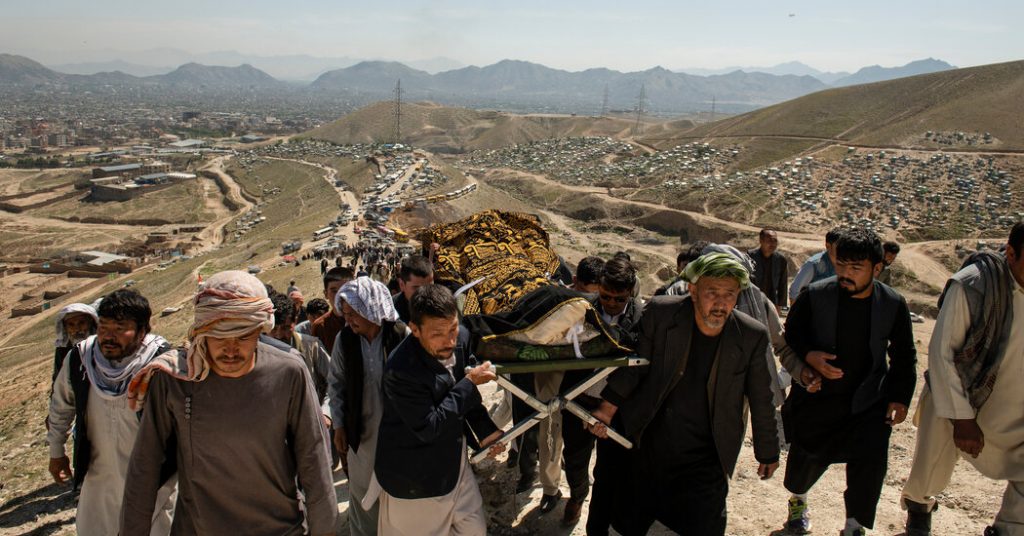After 20 years, the Taliban have returned to power in Kabul. Two decades of progress for women and human rights are certain to be completely demolished. One group, in particular, the Hazaras, are especially fearful for what the future holds.

The Hazaras are an ethnoreligious minority in Afghanistan. They are Shia Muslims, claim descent from the Mongols, and for much of Afghanistan’s history have occupied a semi-autonomous region in central Afghanistan called Hazarajat. Making up 10-20% of Afghanistan’s population, they are mostly found in agrarian communities. For much of Afghanistan’s history, the Hazara have been subject to violence.
This discrimination against the Hazaras goes back at least to the late 19th century. After the second Anglo-Afghan war, the British sought an Afghan leader who would rule the country but allow Britain control over Afghanistan’s foreign policy and maintain support for British interests in India. They found such a figure in Abdur Rahman Khan, the son of Afghanistan’s emir Dost Mohammad Khan. Abdur Rahman launched a series of internal wars against the autonomous areas of Afghanistan with the goal of creating a direct, autocratic rule for himself. He set his sights on Hazarajat.
In the past, the Afghan government controlled only the edges of this region and ruled the rest indirectly. Abdur Rahman’s heavy-handed approach toward Hazarajat led to open rebellion. The “Iron Emir” had the Shia Hazara’s declared infidels, giving free rein to his soldiers to ignore the Islamic laws of war. Many were either killed or sold into slavery; over half of Afghanistan’s Hazaras were killed.
The Taliban have cited Abdur Rahman’s injunction to justify mass killings of the Hazaras. Members of the Deobandi Islamic revivalist school, the Taliban regard Hazaras and others who do not share their extremist Sunni beliefs to be rafidha, or rejectionists. And as such, the Hazaras stand in the way of the Taliban’s goal of a pure Islamic state in Afghanistan.
Targeted killings of the Hazaras by the Taliban go back to the 1990s. In 1998, the Taliban killed thousands of Hazaras after taking the city of Mazar-i-sharif from rebel control. A Human Rights Watch report quoted witnesses describing it as a “killing frenzy”–a melee of indiscriminate murders of civilians and combatants. The Taliban specifically searched for male Hazaras. Some of those who were not killed were imprisoned in metal shipping containers and suffocated to death. Human Rights Watch estimated that at least 2,000 people were killed in this violence. Recently, Amnesty International reported that in early July of this year, nine Hazara men were murdered by the Taliban in Ghazni, shortly after the Islamic fundamentalist group took over that province. According to the report, the men were tortured and then shot.
The true extent of Taliban atrocities may not be clear at the moment. Since taking power in several provinces, the Taliban have cut off phone services and prevented news from reaching the outside world. But the past shows a clear pattern of Taliban reprisals against Hazaras. For example, a hospital of mothers and newborn babies were shot, older men were tortured and dumped into mass graves, and little girls were torn to pieces by an explosion at school. According to GenocideWatch, since 2015 Islamist terrorist attacks have killed at least 1,200 Hazaras. The stories are horrific and too numerous to detail.
Despite assuring the international community that they have changed since the 1990s, the Taliban has yet again committed targeted killings of Hazara, destroyed a statue of a Hazara leader in Bamiyan, and kidnapped Salima Mazari, a female Hazara governor of Chaharkint district in northern Afghanistan. There are also reports that the Taliban have turned Hazara away at the Kabul airport.
Because the Taliban and other Islamist groups deliberately target hospitals and children, these are war crimes. And because this is directed against an ethnoreligious group, this almost certainly meets the definition of genocide. The question is, with the departure of American forces, will the international community come to the aid of the Hazaras? After abandoning the last holdouts of the Afghan government in the Panjshir valley, the prospects are not promising. The west, after 20 years, does not want to shed any more blood for what they see as a lost cause.
Will Calhoun is an independent analyst and writer based in California. A 2019 graduate of the Josef Korbel School of International Studies, his interests encompass Iran, Afghanistan, Pakistan, international security, and human rights.

Comments